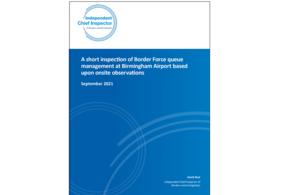HMRC responses to inaccurate claims
HMRC does not do ‘sweetheart deals’ with anyone
Fact: HMRC does not do ‘sweetheart deals’. HMRC makes sure every taxpayer, no matter what their size, pays everything they owe.
Explained
HMRC collects the right amount of tax due under UK law. We make sure every taxpayer, no matter what their size, pays everything they owe.
There are no special deals or reduced rates – everyone has to pay what they owe whether you’re a multinational or someone in Self Assessment.
Last year (2020 to 2021, HMRC’s efforts saw the biggest businesses pay an extra £13.2 billion. This is money that would have gone unpaid without our intervention. Since 2010, we have brought in £94 billion of additional tax from large businesses that would otherwise have not reached our schools, hospitals and other vital public services.
When HMRC and a taxpayer dispute how much tax is due, there are only 2 ways to resolve this:
1) the business agrees to pay the tax, interest and penalties owed
2) the matter is taken to a tribunal or court
When a business agrees to pay the tax due, there is a legal process to be followed and it is the same for the smallest businesses and for global enterprises. The vast majority of disputes, large and small, are settled this way.
HMRC will never accept a lower payment than we could win in court. We will only accept the full amount of tax, interest and penalties owed.
If multinational corporations do not agree to settle a dispute with HMRC, we will take this to a tribunal, and we win most cases.
The National Audit Office (NAO), the UK’s Independent public spending watchdog, has full access to HMRC’s papers and has previously scrutinised the way that we resolve tax disputes in large and complex enquiries. In 2012, the NAO appointed a retired High Court Judge to examine our largest settlements and concluded that HMRC had obtained good settlements in all cases.
HMRC ensures all taxpayers pay what they owe
Fact: HMRC ensures all taxpayers – from the smallest business to the biggest multinational – pays the tax due under UK law.
Explained
At any given time HMRC has around half of the UK’s 2,000 largest businesses under investigation. This compares with around one in ten small businesses.
This is because the largest companies often pose the biggest tax risks. We closely monitor the compliance of large companies with individual tax inspectors dedicated to scrutinising a single company. This resource-intensive approach is the most cost-effective way of ensuring they pay the right amount of tax.
Last year (2020 to 2021), HMRC’s efforts saw the biggest businesses pay an extra £13.2 billion. This is money that would have gone unpaid without our intervention.
The UK tax gap for large businesses is among the lowest in the world, with the latest figures showing this customer segment pays over 97.5% of theoretical liabilities.
Most large business tax disputes are down to different legal interpretations around complex transactions. New rules mean businesses must tell us when their tax arrangements may be subject to legal challenge further strengthening our ability to ensure big businesses pay the tax they legally should.
HMRC has successfully tackled coronavirus help scheme fraud and error
Fact: Robust measures were put in place to control error and fraud in the key coronavirus support schemes. The controls put in place delivered results.
Explained
Throughout this crisis, the government has acted to protect people’s jobs and livelihoods while supporting businesses and public services across the UK. The Coronavirus Job Retention Scheme helped to pay the wages of people in 11.7 million jobs and 2.9 million self-employed workers have received a Self-Employment Income Support Scheme grant.
From the beginning it was clear the schemes would be targets for fraud and that customers would make mistakes. HMRC was clear on this from the outset, with Permanent Secretary Jim Harra warning MPs of this in 2020. HMRC’s current estimate for the amount lost to fraud and error in the schemes during 2020 to 2021 is 8.7% in Coronavirus Job Retention Scheme, 2.5% in Self-Employment Income Support Scheme phases 1 to 3, and 8.5% in the Eat Out to Help Out scheme. This equates to £5.8 billion, against a spend of £81.2 billion, and is in line with the original planning assumptions that informed the design of the schemes.
We designed the schemes to prevent as much fraud as possible before any payments were made, while still quickly supporting those who needed it. We designed the schemes to protect public money by:
- as far as possible, only making grants for employees and businesses using data held on HMRC systems
- preventing ineligible claims from being made and blocking suspicious claims from payment
- using HMRC’s extensive knowledge to make an informed assumption of the error and fraud risk
- investing in post-payment compliance to identify and recover overpayments
By building automated controls into the digital claim process, we prevented more than 100,000 ineligible or mistaken claims, and by carrying our pre-payment checks based on our risk and intelligence profiles, we blocked more than 29,000 claims and registrations in 2020 to 2021. This has effectively countered the threat from organised crime – just 0.3% of the Coronavirus Job Retention Scheme grants paid were estimated to be lost to organised criminals.
HMRC invested in improvements to our online services to make it easier for customers to get it right. Customers returned over £650 million in grants they no longer required and made repayments of more than £350 million to correct mistakes without HMRC intervention, largely through our online disclosure facility.
Work to recover fraud and error began almost as soon as the schemes launched. We recovered £500 million of overpayments in 2020 to 2021. The government then invested £100 million in a Taxpayer Protection Taskforce of 1,265 HMRC staff to combat fraud in the schemes. We expect the taskforce to recover £800 million to £1 billion between 2021 and 2023.
HMRC customer service has not been impacted by staff working from home
FACT: HMRC’s staff members have been working effectively from home since the pandemic began in March 2020 and we are continuing to work hard to support our customers. In fact, in the first half of 2021 to 2022, our customer service has not only improved, but we have also reduced the average time taken to answer calls by more than 4 minutes.
Explained
Over the course of the pandemic, we made choices about the work we prioritised in order to protect our essential services and the livelihoods of our customer groups who need it the most. We prioritised the coronavirus support schemes, the UK’s smooth transition from the European Union and the essential services that keep the tax system running.
Working from home has not been a factor – HMRC colleagues have been working effectively wherever they are throughout the pandemic.
We are in a year of recovery and are making solid progress. We stabilised our overall phone service and are now working through the stocks of post that built up over the past year. We have been able to move more people back to our core tax activities now the coronavirus schemes have ended. Through the measures we are putting in place, and the hard work of our teams, we are on track to be delivering normal (pre-pandemic) performance on our core service lines by April this year (2022).
Making Tax Digital reduces errors and does not add costs or admin burden to businesses
Fact: Making Tax Digital will reduce customer errors and make it easier for businesses to get their tax right. Business will not need to provide information to HMRC more regularly than they do now, nor will they be asked to send any additional information.
Explained
Keeping paper records and submitting VAT returns manually results in more errors. A YouGov poll found 61% of businesses said they had lost receipts. Making Tax Digital will help businesses cut out mistakes by offering a more integrated approach to business administration and tax.
Mistakes mean people trying to do the right thing end up not paying the right tax and face a HMRC inquiry. Last year (2020 to 2021) people failing to take reasonable care cost the public purse £6.7 billion, and mistakes cost £3.7 billion. Making Tax Digital is key to making it easier for individuals and businesses to get their tax right.
An independent evaluation of Making Tax Digital in March 2020 found businesses subscribed to Making Tax Digital for VAT with fully integrated accounting and tax software spent less time on tax.
As of December 2021, nearly 1.6 million taxpayers had joined Making Tax Digital for VAT with more than 11 million returns successfully submitted.
There is Making Tax Digital-compatible software available for no or low cost for most businesses. Costs will differ from business to business, influenced by their size, complexity, and their degree of digital capability, but most will be able to claim any costs for hardware and software against their tax.
Businesses can use existing spreadsheets or bridging software under Making Tax Digital. Businesses can use spreadsheets to maintain digital records and perform tax calculations as long as they combine with bridging software so their VAT return data can be sent to HMRC from the spreadsheet. However, using dedicated Making Tax Digital software will ensure users get the maximum benefits from Making Tax Digital.
Some users who have transitioned to Making Tax Digital have shared their experiences to help other businesses with the Making Tax Digital changes.
Alternatively, you can find more tailored advice for each section of Making Tax Digital and how it will help you.
FACT: Sometimes, HMRC contacts its customers via phone, text and email but we encourage customers to Stop, Challenge, and Protect to ensure that they do not fall victim to scams that impersonate government messages.
Explained
In order to reduce the number of people falling victim to scams such as these, we have issued advice that encourages our customers to Stop, Challenge, and Protect.
Stop:
- take a moment to think before parting with your money or information
- if a phone call, text, or email is unexpected, don’t give out private information or reply, and don’t download attachments or click on links before checking on GOV.UK that the contact is genuine
- do not trust caller ID on phones – numbers can be spoofed
Challenge:
Protect:
Criminals use phone calls texts and emails to try and dupe citizens, often mimicking government messages to make them appear authentic. Typical scams include:
- phone calls threatening arrest if people don’t immediately pay fictitious tax owed
- phone calls claiming that the victim’s national insurance number has been used fraudulently
- emails or texts offering suspicious tax rebates or bogus coronavirus grants or support
HMRC will never contact you to ask you to urgently transfer money or give personal information, nor will we ever ring you out of the blue threatened your arrest. Only criminals do that and instances of phone calls, texts, or emails like that should set alarm bells ringing.
This is why our key message is to ask customers to take their time, remain vigilant, and to use our Stop, Challenge, and Protect advice.


